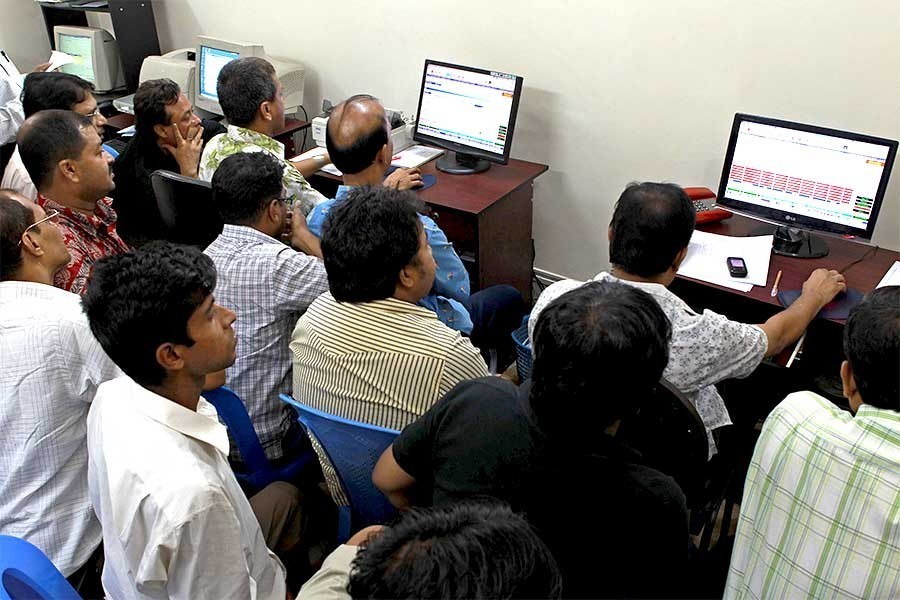
Published :
Updated :

Bangladesh urgently needs to frame a long-term financing policy guideline along with developing a vibrant bond market to lessen the mounting pressure on the country's reeling banking sector, speakers at a roundtable have said.
To ensure a sustainable financial market, they also called upon the authorities concerned like Bangladesh Bank (BB), Bangladesh Securities and Exchange Commission (BSEC), National Board of Revenue (NBR) and Ministry of Finance (MoF) to sit together for devising a long-term lending and investment mechanism to avoid recurrence of capital erosions in banking industry.
In absence of a long-term funding instrument, commercial banks have long been meeting the financing needs of the businesses with their short-term deposits, which is against the global best practices, they observed.
As a result, the volume of non-performing loans (NPLs) in the banking system keeps mounting that ultimately affects other indicators like capital adequacy ratio and profitability.
The suggestions and observations came at a roundtable discussion titled 'Reviving Confidence in Bangladesh's Banking Sector: Why Capital Matters the Most Now' organised by Policy Exchange Bangladesh (PEB) at a city hotel.
Moderating the event, Chairman and CEO, Policy Exchange Bangladesh Dr. M Masrur Reaz said the interim government has three major tasks - governance restoration, democratic transition and economic stabilisation with rebounding growth.
Absence of political and democratic governance was perhaps the biggest casualty that the country witnessed in the last one and half decade and the second biggest casualty was governance in banking sector.
"If we want to bring stability in the banking sector, the issue of recapitalisation is very essential. But the question is how do we meet the huge funding requirement? The global best practice says it is the capital market or market-based recapitalisation," the economist said.
Managing Director and Chief Executive Officer of Mutual Trust Bank PLC Syed Mahbubur Rahman said the pressure to meet the long-term funding requirement on the banks continues to grow in absence of vibrant capital and bond markets in the country.
He said the Capital to Risk-Weighted Asset Ratio (CRAR) dropped to 3.0 per cent from over 11 per cent, which is far below the international standard.
"It is not the technical glitch that causes erosion of capital in banks, it is completely structural and governance failure," he said.
He also said commercial banks have been facing various problems like mounting NPLs and low capital adequacy ratio because of political interference, weak regulatory enforcement, audit failure and mushrooming growth of below-standard rating agencies.
"I think development of the capital market is a must here and the regulators concerned need to sit to address ills of the entire financial market," the senior banker said.
Chief Executive Officer of Prime Bank PLC Hassan O. Rashid said people spend time and energy talking about the past.
"I think we should learn from the past because it is important how we move forward and the capital market can play a vital role in addressing issues that are hurting the banks," he said.
For an effective capital market, the seasoned banker also suggested a coordinated effort from the regulatory bodies like BB, NBR and BSEC is needed to ensure market stability.
"Without such stability, the confidence of the people and investors on the market will not be regained," said Mr. Rashid.
President of Dhaka Stock Exchange Brokers Association Saiful Islam said it would not be possible to meet recapitalisation requirements in banks through the sponsors' equity investment alone. "A vibrant bond market can help overcome it. But it is not in place. All the regulators concerned should work together to this effect," he said. Barrister Syed Afzal Hassan Uddin said the country needs to set up commercial courts dedicated for settling commercial disputes in a faster way.
jubairfe1980@gmail.com


 For all latest news, follow The Financial Express Google News channel.
For all latest news, follow The Financial Express Google News channel.